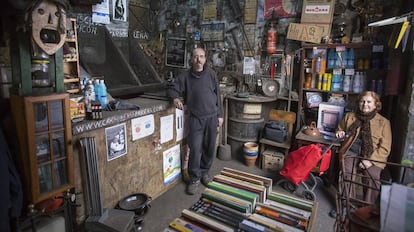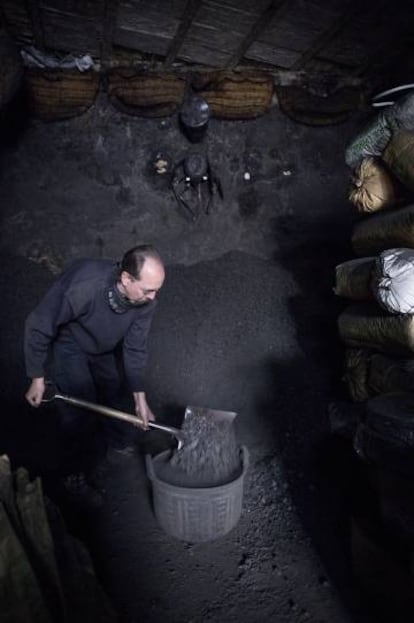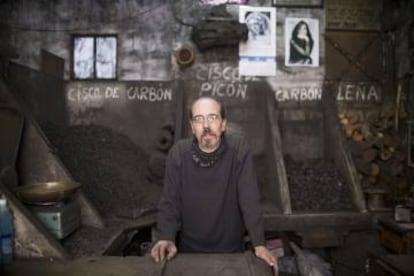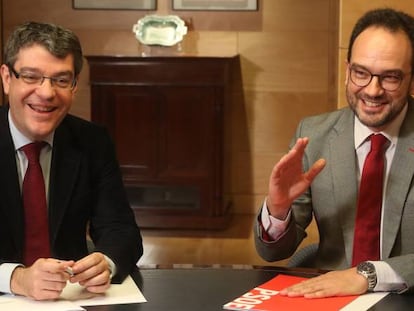How Spain¡¯s coal merchants are keeping the flame alive
The country¡¯s remaining yards still survive thanks to the elderly, foodies, and hipsters

Antique objects, whose names have now been all but lost, accumulate dust between blackened walls that have gone more than half a century without a paint job. The soot-filled coal yard of Luis Aguilar, a third generation coal merchant based in the southern city of Seville, has a particular charm.

Today Aguilar¡¯s profession is almost non-existent, but he still manages to keep his trade viable by providing a few people with fuel for the winter and for their barbecues.
¡°Normally old people from the towns and villages come here,¡± says Aguilar, gesticulating with his blackened hands. ¡°But lately there have been some young people who are going back to the traditional way of life and to a more ecological culture, and prefer to heat their homes using a method that¡¯s almost as primitive as the discovery of fire.¡±
Climate change has affected the coal business, particularly in southern Spain
In his coal yard, called Parras after the downtown street where it is located, Aguilar specializes in four products: wood for fireplaces, charcoal to cook with ¨C mainly for barbecues ¨C and two different types of coal.
¡°In the north they have built-in systems that heat peoples¡¯ homes, but in Andalusia, during the colder months, this is how people keep themselves warm,¡± he says.
He points to the large, old baskets that hang from a dark wall. His grandfather used to fill the baskets with coal or wood and put them on donkeys¡¯ backs in order to get the materials from the old train station on the banks of the Guadalquivir River to the family¡¯s coal yard.
Today, a truck comes in from the neighboring region of Extremadura to drop off the charcoal. Manuel Torrescusa is Aguilar¡¯s driver and has been bringing material to and from the coal yard since 1990.
¡°Today I hardly go anywhere; practically no one is buying the charcoal. Before I had about 30 clients but the old people are passing away and new technologies are taking off,¡± says Torrescusa.

He also thinks that climate change is partially responsible for a drop-off in business.
¡°Two days ago we were wearing t-shirts. Before, it used to get cold, really cold,¡± he says.
In the Canary Islands, the burning of coal or charcoal is limited to restaurants, grills, roasting ovens or barbecues.
¡°Before, charcoal was more common in the kitchen, but now it¡¯s disappearing,¡± explains Carmelo Jim¨¦nez, president of a coal vendors association based on the island of Gran Canaria.
¡°But here we maintain our traditions, and even today there are still people who collect wood with their donkeys and make fires using the traditional method called hoyas, in which we use almond wood and another native wood called escob¨®n.¡±
The coal yard of Manuel Benayas is on Embajadores street, in the southern part of downtown Madrid. It opened in 1934 and specializes in charcoal for cooking, but its owner has also diversified into the world of aromatic woods.
¡°The distinct effects from different woods, like wood from barrels, from sherry barrels for example, are becoming more and more appreciated all the time,¡± says Benayas, who teaches online courses about how to grill food.
¡°You can even make cakes on the grill: there¡¯s huge potential and it¡¯s unknown in Spain,¡± explains Benayas, who has five employees and supplies 150 restaurants.
The biggest source of competition for this traditional sector comes from the large companies that sell the fuel more cheaply.

¡°It¡¯s impossible to compete with the prices of the big warehouses, no matter how little we charge,¡± says Jim¨¦nez, who admits that the money he makes from his coal yard supplements his other income.
¡°They are my main competition; you go there and you bring home a perfectly sealed bag, full of charcoal that comes, for the most part, from Latin America. What I sell comes from controlled logging in Extremadura,¡± says Aguilar.
He hopes to keep the business in the family, but is unsure if it will last another generation ¨C he has no children, and his nephews and nieces are still very young. He says that the only reason he can keep his shop open is because he does not have to pay rent.
¡°Otherwise it would be impossible. But I want to continue in this line of work. I¡¯m sure I¡¯d make a lot more money if I started a bar or sold the building, but for me, it¡¯s more a way of life than a business,¡± Aguilar explains.
English version by Alyssa McMurtry.
Tu suscripci¨®n se est¨¢ usando en otro dispositivo
?Quieres a?adir otro usuario a tu suscripci¨®n?
Si contin¨²as leyendo en este dispositivo, no se podr¨¢ leer en el otro.
FlechaTu suscripci¨®n se est¨¢ usando en otro dispositivo y solo puedes acceder a EL PA?S desde un dispositivo a la vez.
Si quieres compartir tu cuenta, cambia tu suscripci¨®n a la modalidad Premium, as¨ª podr¨¢s a?adir otro usuario. Cada uno acceder¨¢ con su propia cuenta de email, lo que os permitir¨¢ personalizar vuestra experiencia en EL PA?S.
En el caso de no saber qui¨¦n est¨¢ usando tu cuenta, te recomendamos cambiar tu contrase?a aqu¨ª.
Si decides continuar compartiendo tu cuenta, este mensaje se mostrar¨¢ en tu dispositivo y en el de la otra persona que est¨¢ usando tu cuenta de forma indefinida, afectando a tu experiencia de lectura. Puedes consultar aqu¨ª los t¨¦rminos y condiciones de la suscripci¨®n digital.










































